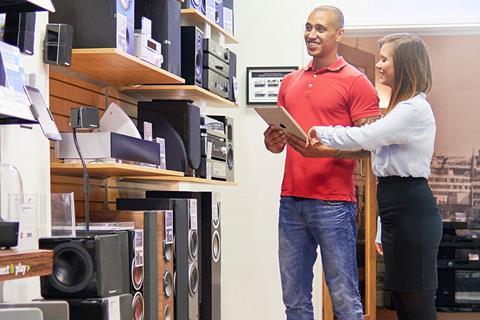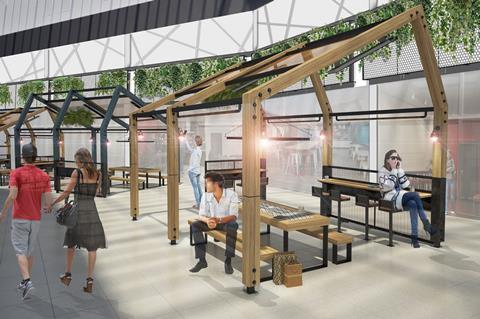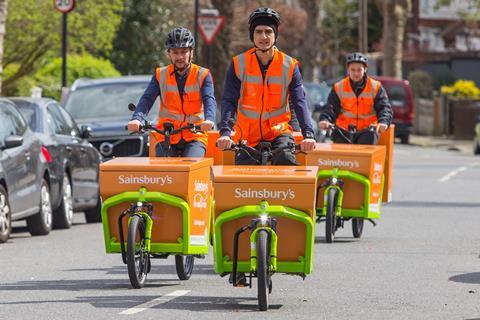Retail has changed dramatically over the last century with the rise of bigger stores and even bigger shopping centres and the introduction of the goliath that is online shopping. As consumers expect faster, better, more efficient service at the click of a button, the introduction of anything tech-related is a must.
However, as shoppers battle a minefield of choice, retailers are now starting to look to the past for old ideas and concepts to offer its future customers a new kind of retail experience, boost sales and drive footfall.
Refills
As environmental and sustainability issues rise up the retail agenda, supermarkets are under the plastic usage spotlight. The top 10 supermarkets produce around 880,000 tonnes of single-use plastic a year, according to a report by the Environmental Investigation Agency and Greenpeace.
A more ethically minded consumer is forcing retailers to use once forgotten methods of selling their grocery produce.
Both Waitrose and Iceland are trialling plastic-free stores, which allow customers to refill jars, tubs and containers from food dispensers.
Value grocer Iceland has pledged to eliminate plastic entirely by 2023 by following in old-fashioned greengrocers’ footsteps. Paper bags instead of plastic, loose fruit and veg, and boxes and tote bags instead of plastic carrier bags to take it all home in, is the ‘old new’ way of shopping.
Waitrose is also trialling its first plastic-free store in Oxford. Customers can choose from a variety of items including fruit, vegetables, wine and beer to be taken home in reusable bottles, and 30 dried products including pasta, rice, dried fruit and cereals.
Services
As competition from online retailers ramps up every year, bricks-and-mortar stores must look to attract customers another way. Shops are becoming less about selling goods and leaning more towards selling services as retail spaces go back to being multifunctional.
Fashion retailers H&M, Gap and Uniqlo now offer repairs, personalisation and tailoring services in a bid to relieve the pressure the fast fashion industry has on the environment and encourage consumers to look back at how clothes were treated years before – mending and fixing rather than wearing then throwing away.
Department stores like Liberty and Harrods are leading the way with their in-store services.
Both offer nail bars, hair salons, body piercing, florists and beauty spas, attracting a different type of customer and most importantly, keeping them onsite for longer.
Rentals
Rewind to the 1970s and 1980s and renting your home appliance was commonplace. Radio Rentals and Granada TV both rented out TVs and VHS players respectively.
Now electrical etailer AO.com is following suit. The online retailer has partnered with housing associations across England and Scotland with the aim to expand the offering if the trial goes well.
Customers can rent white goods from £2 per week, which includes insurance, repairs and the recycling of old appliances.
Customer service champions
Self-service, home delivery and click-and-collect mean you can buy anything and barely talk to anyone in the process.
But as consumers search for more authentic interactions with their favourite brands, retailers like Timpson, Hotel Chocolat, Lush and Richer Sounds are reaping the benefits of providing excellent customer service.

Go to any of these stores and the staff are approachable, interactive, and engaging. They all provide a type of customer service which was on the verge of being lost in the past.
Walk into any Lush store and you are immediately greeted by a knowledgeable staff member who is more than happy to demonstrate products, provide testers and then take you to the till counter when you’ve made your choice.
The same goes with staff at the likes of Richer Sounds and Timpson. On-hand staff full of product knowledge make them stand out above other retailers.
Consumers may want the speed and efficiency of self-service when buying goods, but the effect of great customer service is undeniable.
Concierge
Concierge services, once restricted to hotels and luxury apartments, are fast becoming the go-to service for high-earning customers looking for a more personalised and hassle-free shopping experience.
Online luxury fashion etailer Net-a-Porter offers it high spending EIPs – extremely important people – a range of concierge services including personal shopping, free worldwide delivery, access to special events and private sales alongside surprise gifts sent at random throughout the year.
Net-a-Porter’s EIP customers make up around 3% of its clientèle but account for 40% of its total sales, so treating those customers to something special has its advantages.
Harrods department store is renowned for never saying no to its customers – from flying English strawberries to the Middle East for a tea party to gift-wrapping a helicopter. Its specialised concierge services offer bespoke toys, gifts and travel arrangements.
Market halls
Dating back to medieval times, market stalls were the way to trade goods and the hub of local towns. As the stalls became more popular, people wanted better security and shelter from the weather.

Out of that, the market hall was born giving buyers and sellers a covered area to shop in. The first of its kind was St John’s Market in Liverpool in 1822.
The market hall has recently been revived to offer people a different kind of shopping and dining experience.
Retail and leisure company Market Halls opened two new locations last year in Fulham and Victoria, and this year rolled out two more – one in London’s West End and its first shopping centre offering The Hall at Intu’s Lakeside as part of its £72m leisure extension.
Bike delivery
Sainsbury’s and the Co-op have both given a nod to the past and now offer grocery delivery by bicycle. Bicycle couriers were the norm in the 1970s and 1980s and parcels, post and groceries were delivered by bike.
Royal Mail phased out its bicycle deliveries in 2014 but the delivery service for groceries and takeaways is back and becoming the new normal.

Sainsbury’s ChopChop service offers delivery within 60 minutes for a £4.99 delivery charge and the Co-op offers a similar service with delivery offered within a two-hour window for £5.
Both services are only available in London at the moment, but as congestion charge areas expand and air quality in the country deteriorates, this old-school way of delivery is making a welcome return.
Source link



